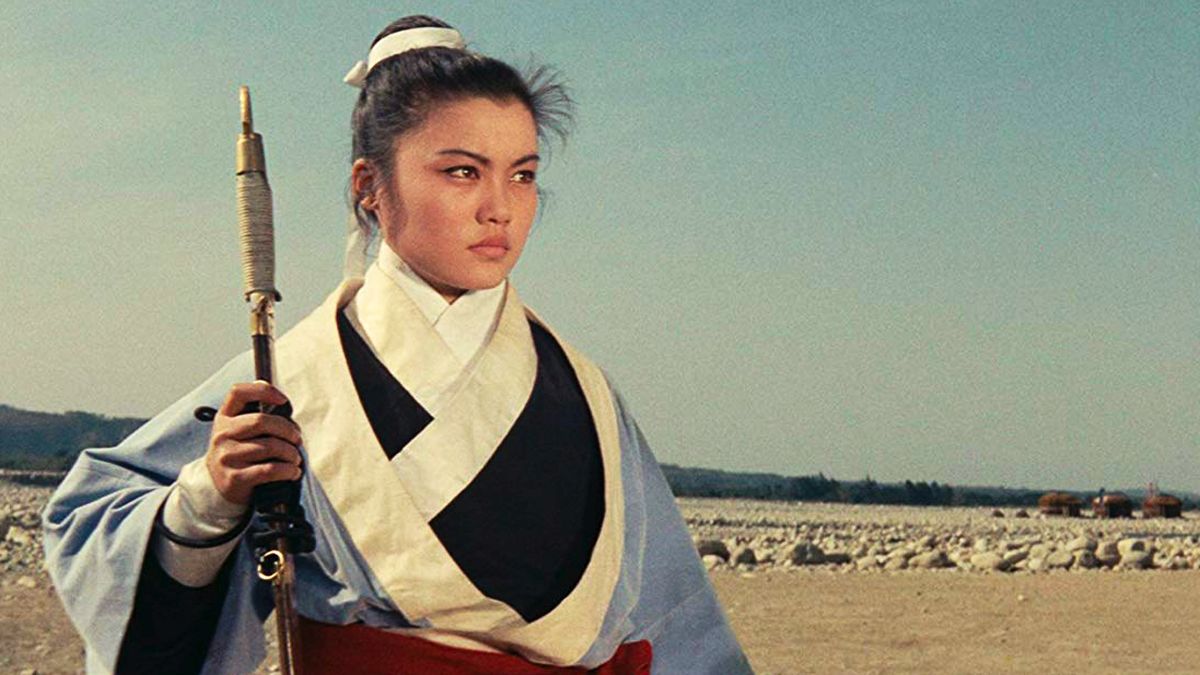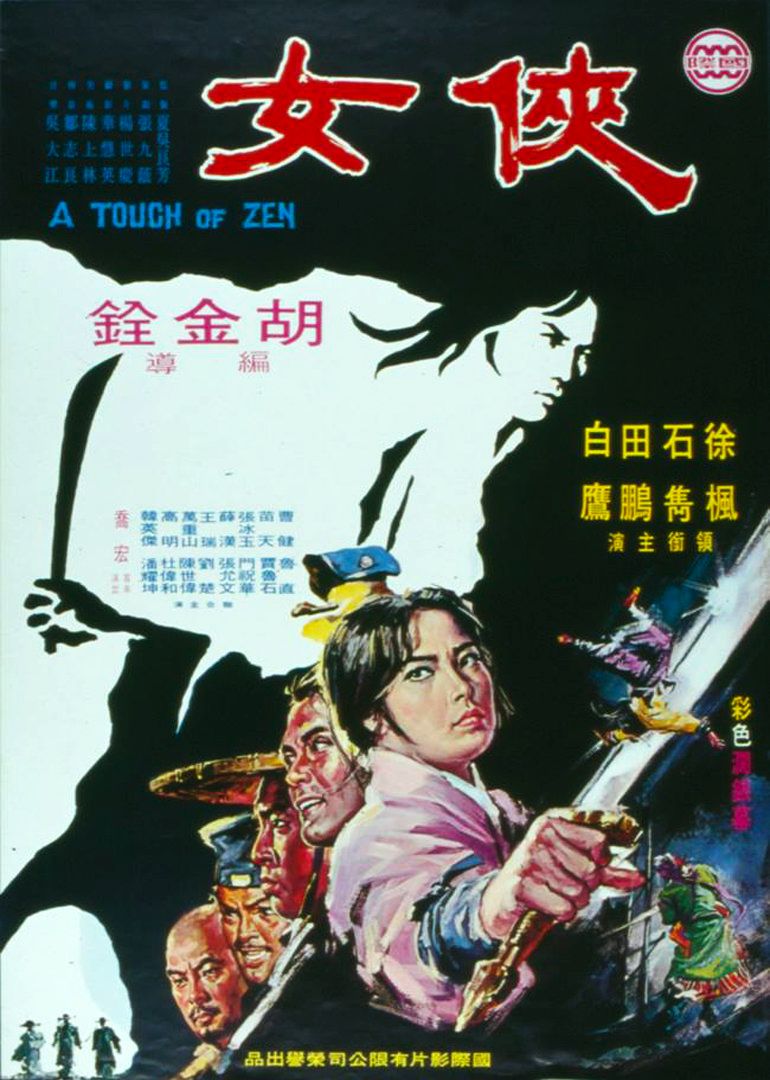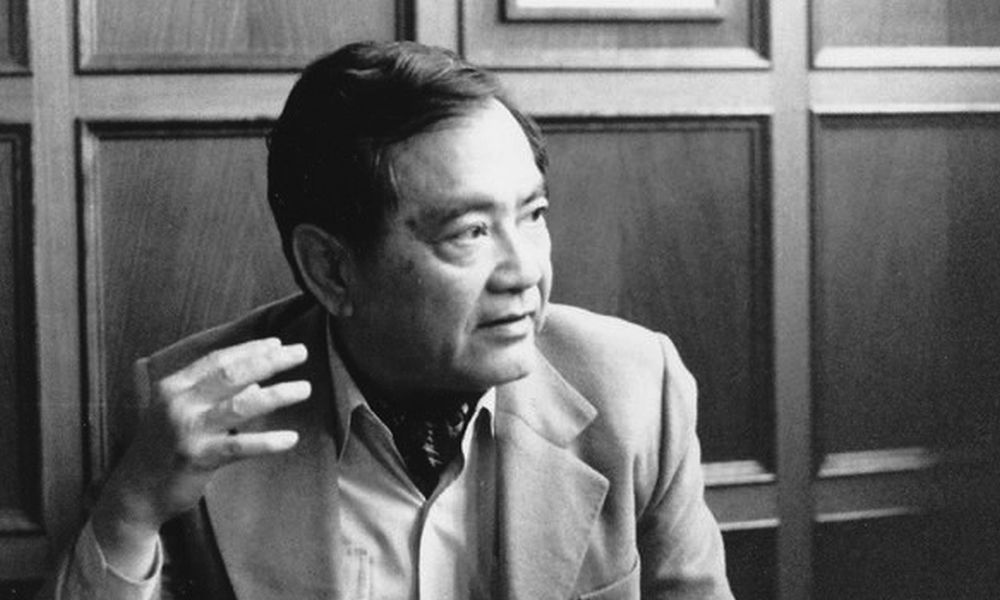"Few other martial arts directors took the genre to as lofty a height as King Hu, whose best work transformed swordplay into acts of balletic beauty… Although Hu's style of cinema had become unfashionable by the late 1970s, films such as Crouching Tiger, Hidden Dragon (2000) and House of Flying Daggers (2004), with homages to memorable fight scenes from his films, highlight the enduring popularity of the filmmaker's greatest work." - Ian Haydn Smith (Cult Filmmakers, 2019)
King Hu
Director / Screenwriter / Editor / Producer / Production Designer
(1932-1997) Born April 29, Beijing, China
Top 250 Directors
(1932-1997) Born April 29, Beijing, China
Top 250 Directors
Key Production Countries: Hong Kong, Taiwan
Key Genres: Action, Adventure, Drama, Martial Arts, Fantasy Adventure, Fantasy
Key Collaborators: Hsu Feng (Leading Actor), Bai Ying (Leading Actor), Tadashi Nishimoto (Cinematographer), Roy Chiao (Leading Character Actor), Wu Ta Chiang (Composer), Chow Lan-Ping (Composer), Johnson Tsao (Production Designer), Tien Feng (Character Actor), Han Ying-Chieh (Character Actor), Shih Chun (Leading Actor), Run Run Shaw (Producer), Henry Chan (Cinematographer)
Key Genres: Action, Adventure, Drama, Martial Arts, Fantasy Adventure, Fantasy
Key Collaborators: Hsu Feng (Leading Actor), Bai Ying (Leading Actor), Tadashi Nishimoto (Cinematographer), Roy Chiao (Leading Character Actor), Wu Ta Chiang (Composer), Chow Lan-Ping (Composer), Johnson Tsao (Production Designer), Tien Feng (Character Actor), Han Ying-Chieh (Character Actor), Shih Chun (Leading Actor), Run Run Shaw (Producer), Henry Chan (Cinematographer)
"King Hu's status as the unchallenged master of the wuxia pian (swordplay) film is based predominantly around three magnificent works he produced between 1966 and 1969: Dragon Gate Inn (1966) (Dragon Inn), Come Drink with Me (1966) and A Touch of Zen (1969)… The influence of his approach to the subject matter and his visual style continues to be felt by anyone making swordplay films. Perhaps most strikingly - although it may have gone unnoticed by many of those who experienced it - this can be seen in Ang Lee's Crouching Tiger, Hidden Dragon (2000), which seems to have the spirit of Hu etched into almost every frame." - Andy Willis (501 Movie Directors, 2007)
"Universally recognized as one of the most influential and important Chinese directors in the history of cinema, King Hu came to fame making wuxia movies – the swordplay subgenre of martial arts cinema. In the process of perfecting the genre, Hu was also able to make it a vehicle for his authorial personality, much as Kurosawa would do with the samurai film and Minnelli with the Hollywood musical. While Kurosawa had a direct influence on Hu, the comparison with Minnelli is equally apt since both men were highly cultured aesthetes who paid special attention to the décor and art direction of their films and who reveled in the ability of mise-en-scène, movement and the spatial composition of the frame to express character and the relations between characters." - David Pendleton (Harvard Film Archive, 2013)

Dragon Inn (1967)
"King Hu was not only a master in the historical martial art film genre (known in Chinese as Wu Hsia P’ien or Wu Xia Pian), but a revolutionary of the form as well. One of the most popular genres in Chinese film history, it reached its peak in the 1970s in Hong Kong… Influenced by Peking opera, King Hu always presented his main characters clearly and vividly in their first appearances on screen and lets the characters’ interactions occur within a limited space. The presentations provide the audience with an early introduction of the main characters’ backgrounds, personalities, motives, and duties, giving a clear indication of where everyone fits in the moral landscape. This restricted realm creates denser and more intensive emotional developments, paving the way to a higher dramatic climax." - Vivian Huang (International Dictionary of Films and Filmmakers, 2000)
"Introductions to King Hu’s celebrated martial arts films often come via the contemporary global successes they have inspired. Indeed, anyone who was swept up by the wuxia boom of the 2000s will be familiar with the tropes that pepper Hu’s oeuvre (sword-wielding heroines, mistaken identities, secret allegiances, rooftop chases, showdowns in taverns and bamboo forests). However, Hu is not simply the progenitor of the wuxia blockbuster: he goes beyond the escapist pleasures of the genre to take the audience on spiritual journeys that confound expectations." - John Berra (BFI, 2020)
"Working within the tradition of Chinese swordplay movies, the Hong Kong actor-turned-writer-director deployed humour, fantasy and convoluted stories to bring a fresh perspective to familiar material. Most distinctive was the dazzling expertise brought to the balletic action sequences, in which he and fight-arranger Han Ying-Chieh choreographed conflict in the pyrotechnical style of Peking Opera." - Geoff Andrew (The Director's Vision, 1999)
"Hu’s legacy rests on his wuxia films. With the genre, Hu was able to excel and leave his mark in the Hong Kong and Taiwan film industries. It allowed him to engage the audience in his preoccupations with Chinese social history, military strategy, religion and philosophy. Using his creative intuition – the touch of Zen – Hu invoked and combined Chinese poetry, opera, literary traditions and even folklore with martial arts action into a commanding sense of cinema." - Stephen Teo (Senses of Cinema, 2002)
Selected Filmography
{{row.titlelong}}
King Hu / Favourite Films
Dersu Uzala (1975) Akira Kurosawa, High and Low (1963) Akira Kurosawa, Rashomon (1950) Akira Kurosawa, Seven Samurai (1954) Akira Kurosawa, Song at Midnight (1937) Ma-Xu Weibang, The Tale of Zatoichi (1962) Kenji Misumi, Yojimbo (1961) Akira Kurosawa.
Source: What is a Film? [Book] (1988)
Dersu Uzala (1975) Akira Kurosawa, High and Low (1963) Akira Kurosawa, Rashomon (1950) Akira Kurosawa, Seven Samurai (1954) Akira Kurosawa, Song at Midnight (1937) Ma-Xu Weibang, The Tale of Zatoichi (1962) Kenji Misumi, Yojimbo (1961) Akira Kurosawa.
Source: What is a Film? [Book] (1988)
King Hu / Fan Club
Jia Zhangke, Ryan Swen, Kevin B. Lee, Alberto Pezzotta, Michael Berry, Law Kar, Peter Rist, Sean Gilman, Long Tin Shum, Pierre Rissient, Regina Schlagnitweit, Udagawa Koyo.
Jia Zhangke, Ryan Swen, Kevin B. Lee, Alberto Pezzotta, Michael Berry, Law Kar, Peter Rist, Sean Gilman, Long Tin Shum, Pierre Rissient, Regina Schlagnitweit, Udagawa Koyo.
"Fan Club"
These film critics/filmmakers have, on multiple occasions, selected this director’s work within film ballots/lists that they have submitted.
These film critics/filmmakers have, on multiple occasions, selected this director’s work within film ballots/lists that they have submitted.


